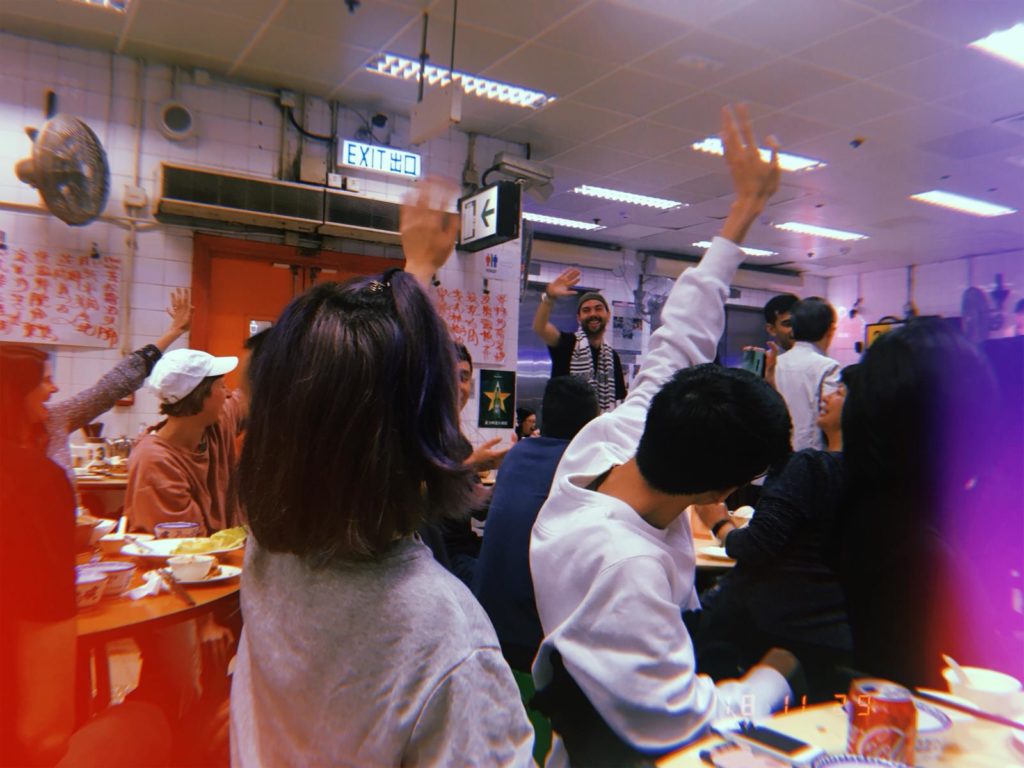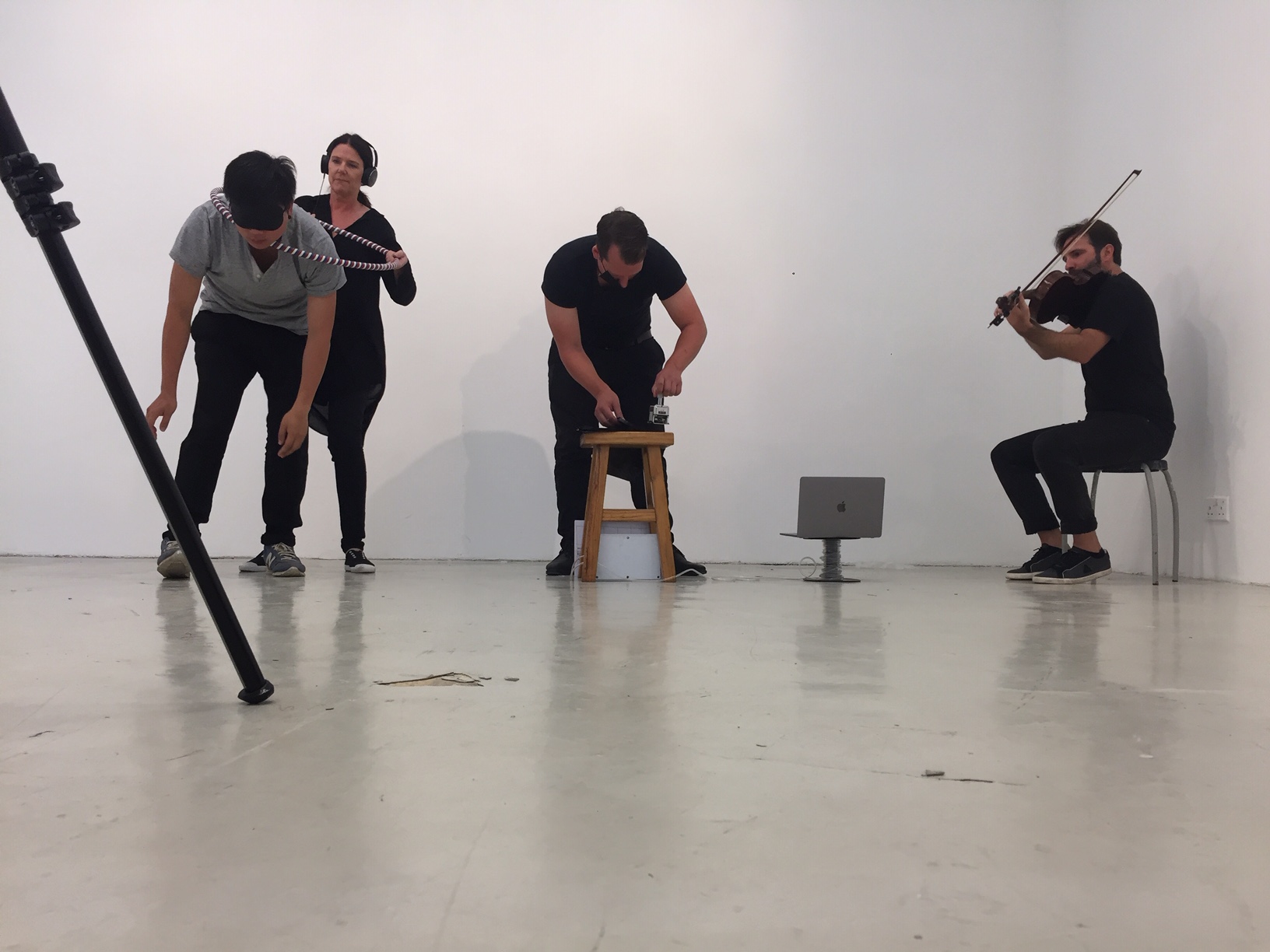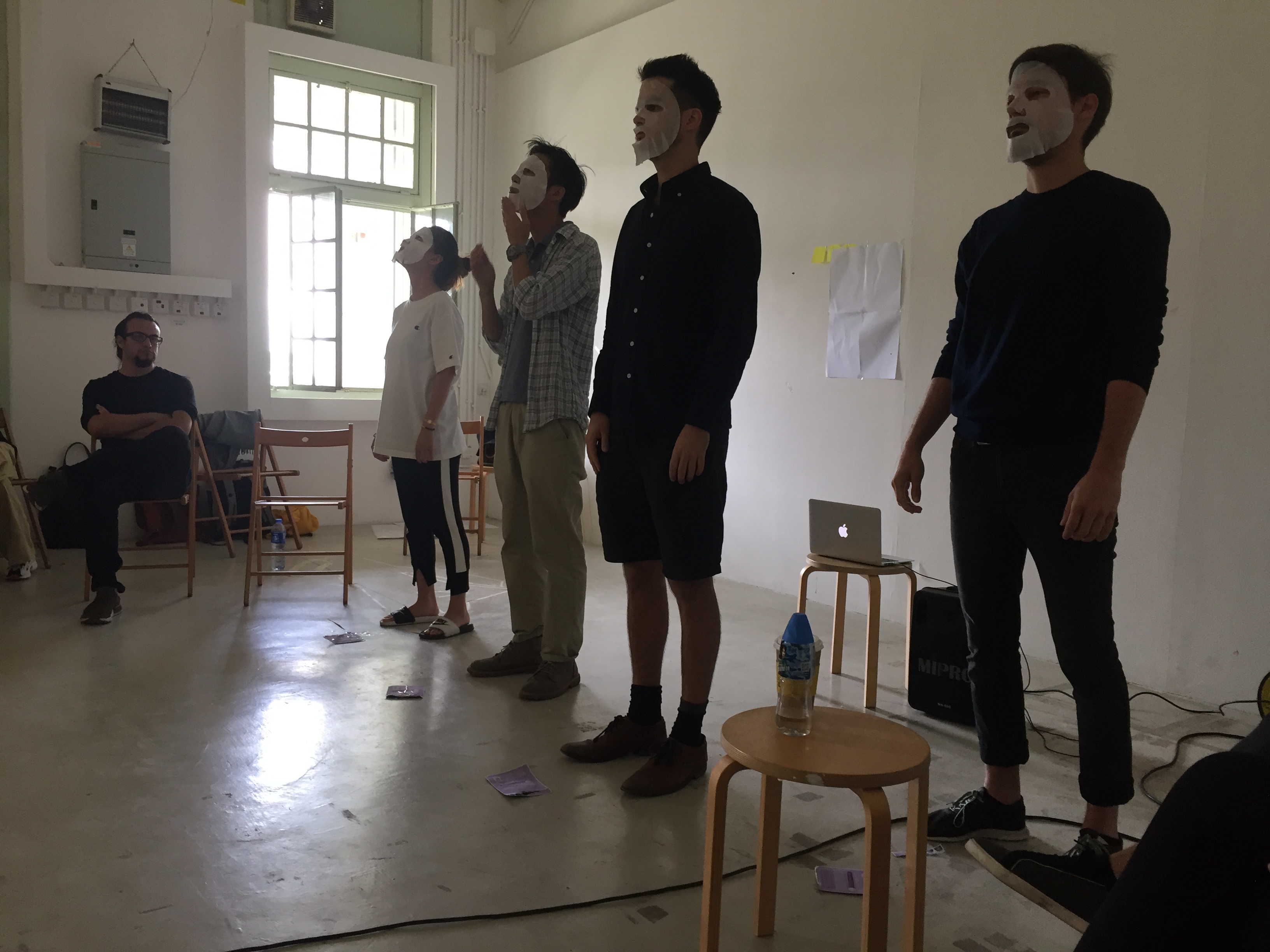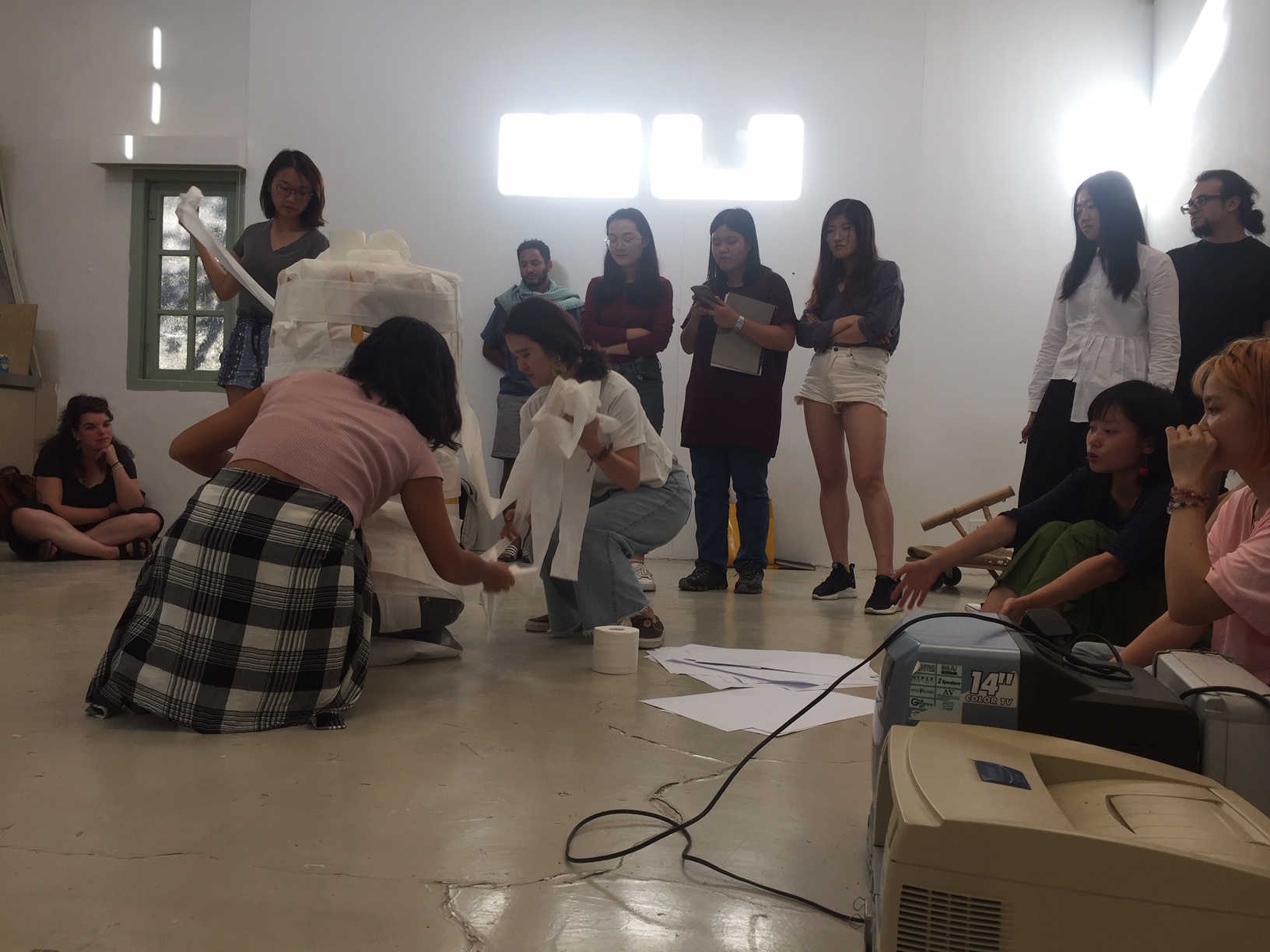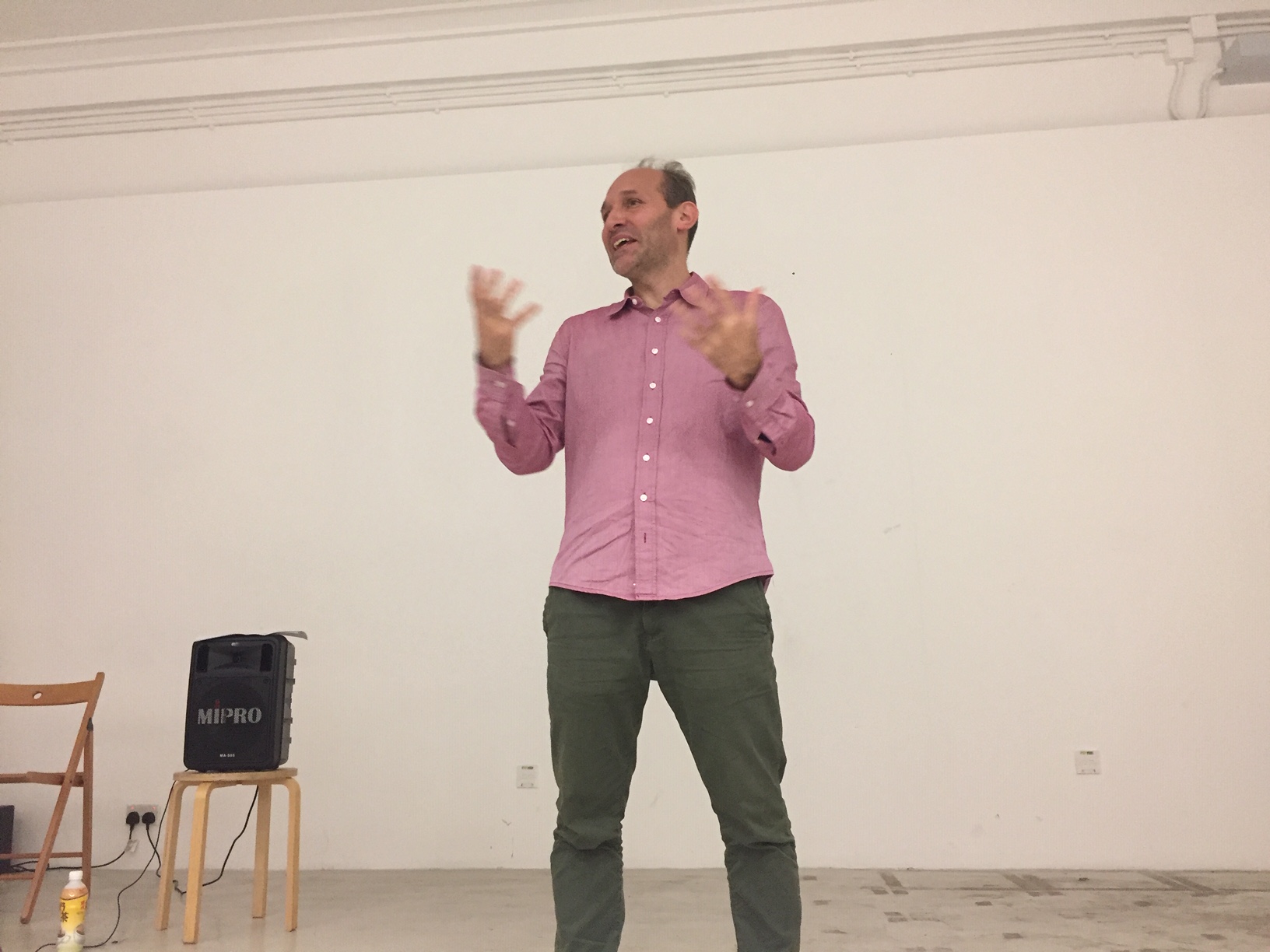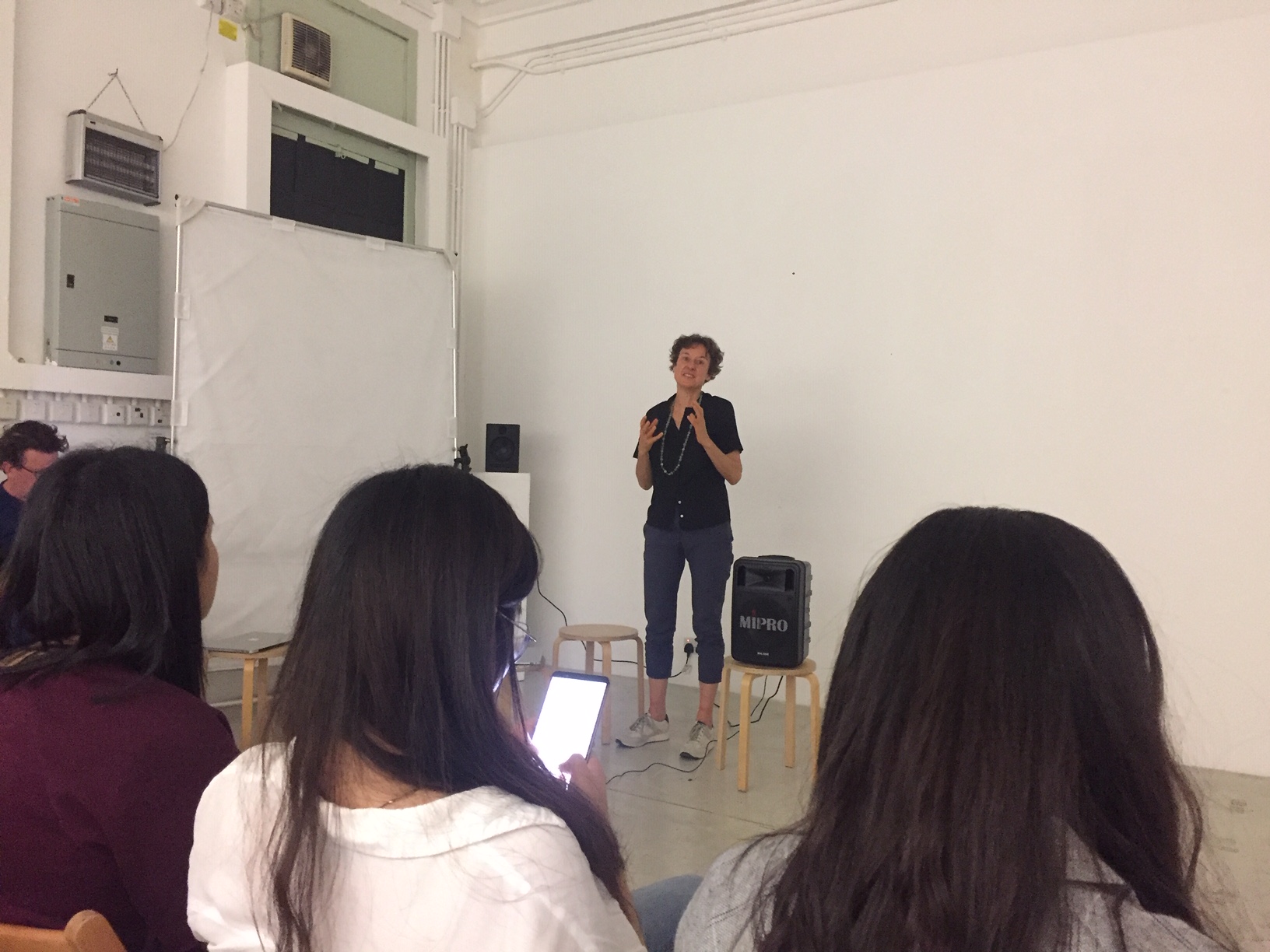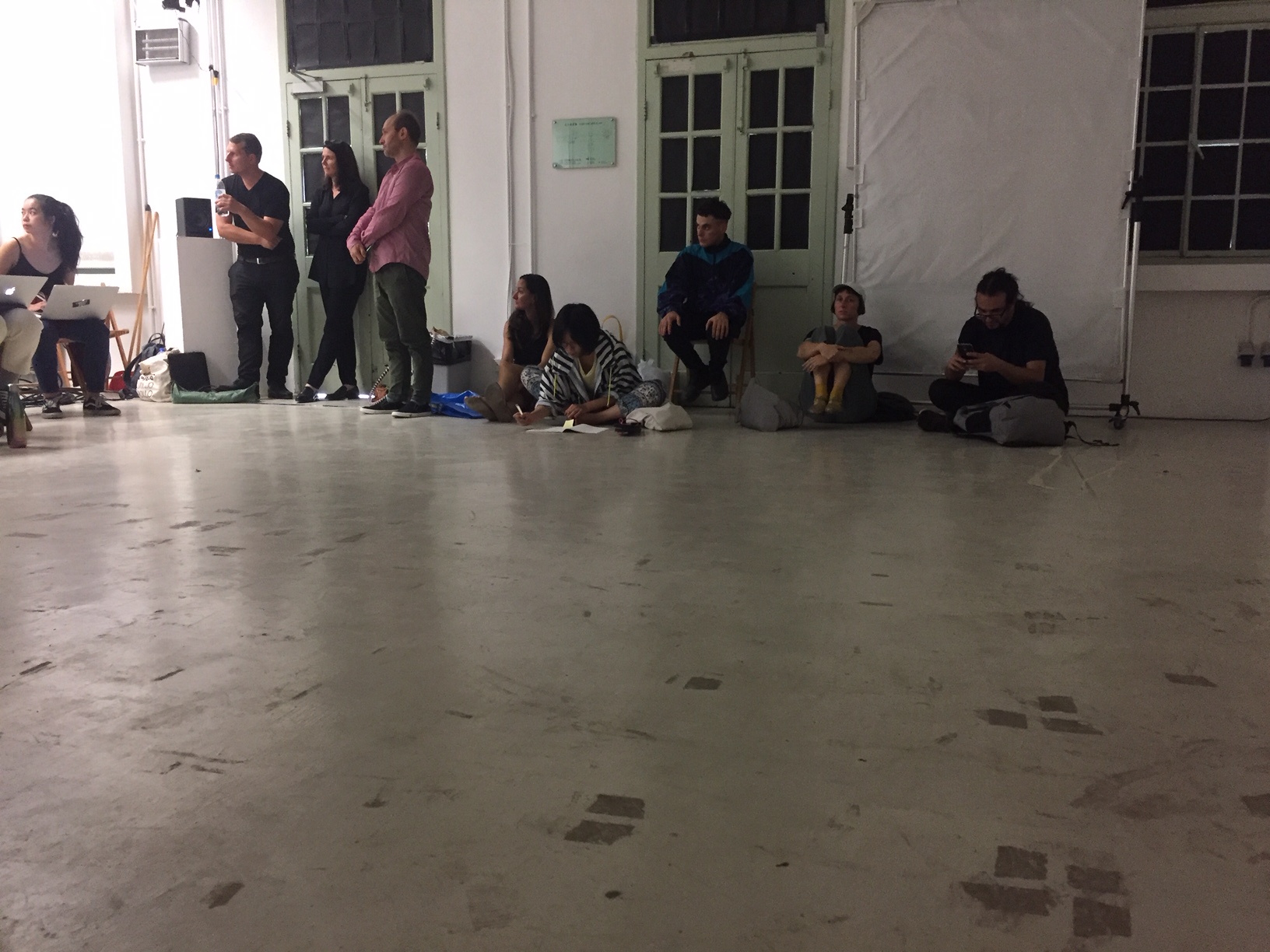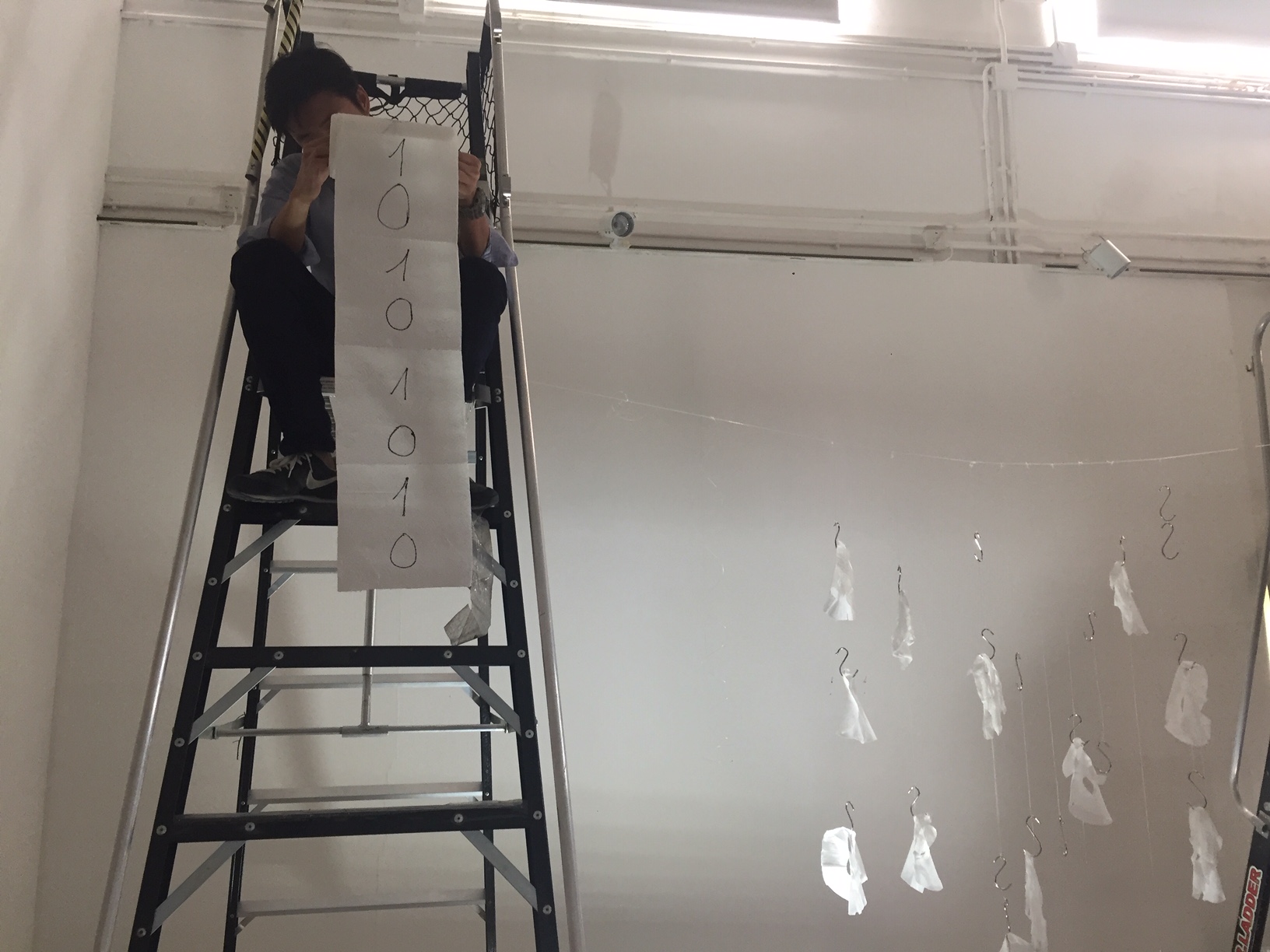Week 11
In a nutshell
- Planning: until final presentations
- Reflection: discussing the 2nd phase / Shanghai with Sabine Harbeke
- Lecture: Joëlle Bitton on Spoken / Unspoken – Notions of Linguistics
- Group building: incl. ideation process and methodological experiments
- Team work: project conception and performing ideas
- Lecture: Jau-Lan Guo, curator and educator from Taipeh
Monday
Introduction of Joëlle Bitton who was new to the group and Sabine Harbeke who had already worked with us during a two-day workshop on the topic of feedback in the Zurich phase.
Joëlle Bitton presented her work that meanders between linguistics and technology. She’s interested in how technology shapes nations, people and bodies. The body as well as movement she perceives as interfaces. In that sense, her works often aim at embodied interaction. She tries to interweave a personal with an engaged point of view and access deeper meaning through the everyday, the apparently trivial. For example has she been wondering how we can make fabrication tools more personal, embodied and intuitive by being more playful with them. She calls this “performative materiality”. What happens to matter when it is out of control? They might become “objects of a third kind” (see e.g. James Bridle’s notion of “odd materiality”).
Sabine Harbeke began her presentation by describing her own transdisciplinary past. For decades she has crossed fields herself: from visual communication to a love for language, from design, to literature, to architecture and from physical education to studying film directing in NYC up until becoming an author and director for theatre. In her so far 16 plays Harbeke often deals with the question of how political incidents and urban circumstances infiltrate private life. On a meta level, she is interested in reinventing theatre inside and outside the institution.
“Optimism is a talent.” – John Cage
In a plenary session guided by Harbeke, the group took a close look at the Shanghai week and subsequent exhibition, considering the difficulties, surprises and potentials they have encountered during their collaborations up until now. Subsequently, the group engaged in a collective and individual brain storming in order to pave the way for the group building and ideation process in the days to follow.
Tuesday
The whole of Tuesday was dedicated to group building for the third and last phase of the programme under the guidance of Joëlle Bitton. She initiated the day with an input speech on the semester topic. Then the day continued with an idea speed dating session and collective prototyping in the afternoon where provisional groups drafted ideas by setting up installations made out of waste elements.
Wednesday and Thursday
Both days were used for definite group building and project conception.
Friday
In the morning the new (and old) groups were asked to convey their ideas through small performances. In the afternoon Jau-Lan Guo curator and faculty member at our partner school in Taipei (Taipei National University of the Arts) paid us a visit to present her curatorial work.
Week 12
In a nutshell
- Team work, project prototyping and mentorings
Week 13
In a nutshell
- Presentation: performing of project prototypes
- Inputs: Dimitri de Perrot and Isabel Mundry
- Team work, rehearsal planning and further mentorings
Monday
In a plenary session, each group shared a performance, performance installation or other presentation of approximately 15 minutes in order to give an impression of their current ideas.
Isabel Mundry, composer and professor for composition at ZHdK, joins TC as a two-week mentor for the second year in a row. In the past she has already been preoccupied with this year’s semester topic by inquiring for example the meaning of speech in arts. Moreover, she explored how to express musically what might be difficult to express verbally and also questioned the workings of aesthetic perception beyond speech. She described her personal take on the unspoken by sharing some of her compositions:
Just about 20 years ago, Mundry composed a string quartet that focused on structural questions in musical notation. By taking some rules from traditional notation while applying certain individualizations to interrupt the former, she wanted to depict how the uncontrolled can come forth from the controlled. In a later work, she dealt with what can be felt beyond the algorhithm and took an interest in “metaphoric correspondence” i.e. how music can be related to perceptions beyond music. This project kicked-off her interest for semiotics. In yet another work she composed a piano concerto for a traditional orchestra setting. In the course of this, she aimed at showing how the individual (the piano) is supported by the corpus of the collective (the orchestra). Of big concern for this work was the topic of identity. Mundry had wondered: is identity something you want to be or something you have to be? Integrating this question into the piano concerto, she developed ambivalent musical situations that questioned the independence of the individual (instrument). Among others Marc Augé’s notion of “non-places” was a central influence for the work. She aimed at creating a sense of the transitory, the non-place in her composition. Later on, she grew an interest for the event and performance of the concert itself: the things outside the score, that aren’t signs nor symbols but articulations of the present moment. For this reason, she developed settings of improvisation and started to conceive the performance as a compositional category (especially the act of listening). Finally, she introduced her project Mouhanad (2018) which resulted from her dwelling sitations in Munich where Mundry lives in front of a refugee center. A simple interview about neighbourhood had transformed into questions of how to tell something and what is co-expressed with words. She’d noticed the elliptic character of the story told to her by a man who had fled Syria and that words are only results. Her main interest here was the field before, after and in between verbal expression.
It’s fair to say that Dimitri de Perrot is a jack of all trades. When heavy industry left Zurich in the 1990s the free spaces that emerged were a fertile soil for creative endeavours and underground parties. It was in this setting that de Perrot became a DJ. It wasn’t long before he took a deeper interest in the dramaturgy of a DJ set and the theatricality of a party but also in space design, scenography, movement flow and lighting. He came to perceive all these elements as crucial parts of a composition. Furthermore he experimented with the materiality of the sound, with the potential of it beyond the limits of the vinyl. Therefore, he started playing around with loop machines, amplifiers, synthesizers and pre-recordings. Sound became a tool to tell stories. This and other insights he gained in the party scene were influential for his later work with dancers, choreographers and circus artists. His biography-based input focused on the challenges and possibilities he encountered in those trans-disciplinary collaborations. With regard to collaborating he shared his realization from the project Öper Öpis that the more you open up to the vulnerability or fragility of the group, the deeper is the level you can work on. Regarding the semester topic he made an argument “against verbal interpretation” by stressing that words can sometimes destroy creations and that not using text allows for the projection of an own story to emerge on the part of the audience.
Tuesday to Friday
Team work, planning and mentoring
Week 14
In a nutshell
- Intense prep, mentoring and rehearsals for final exhibition
- Round Table on “What’s good when anything goes?” snacks and discussion on contemporary criteria for art criticism with Isabel Mundry
- Final Exhibition and Closing Night: 講咗/冇講 : SPOKEN / UNSPOKEN at Baptist University’s Kai Tak Campus (gallery coming soon)
Week 15
In a nutshell
- Tears!
